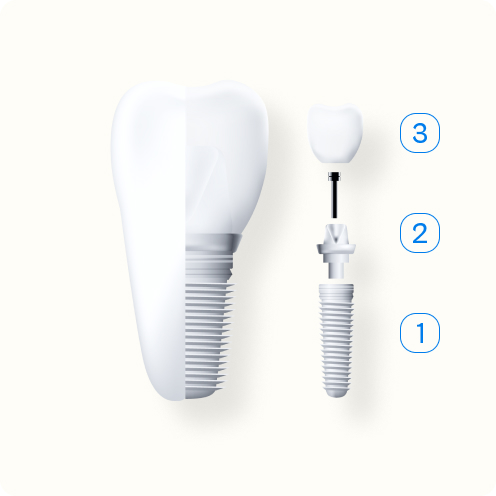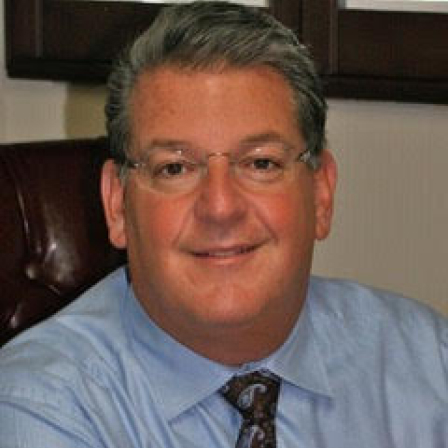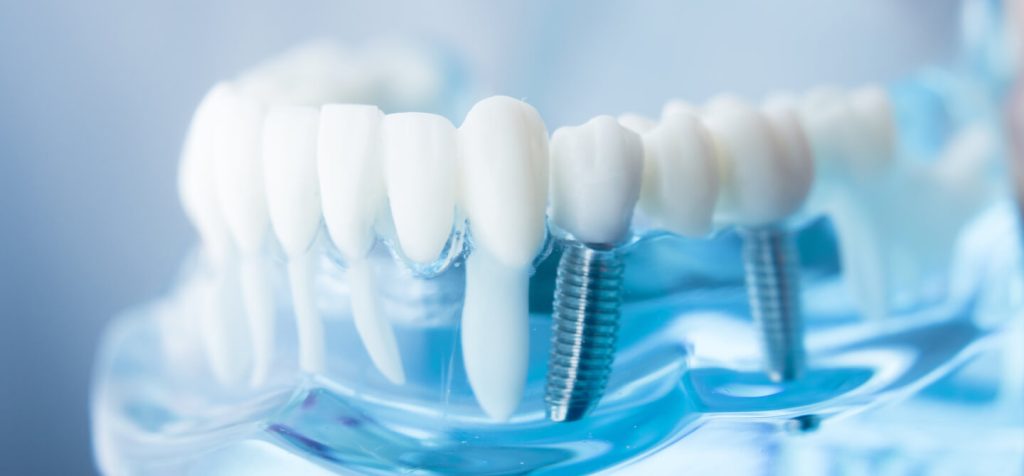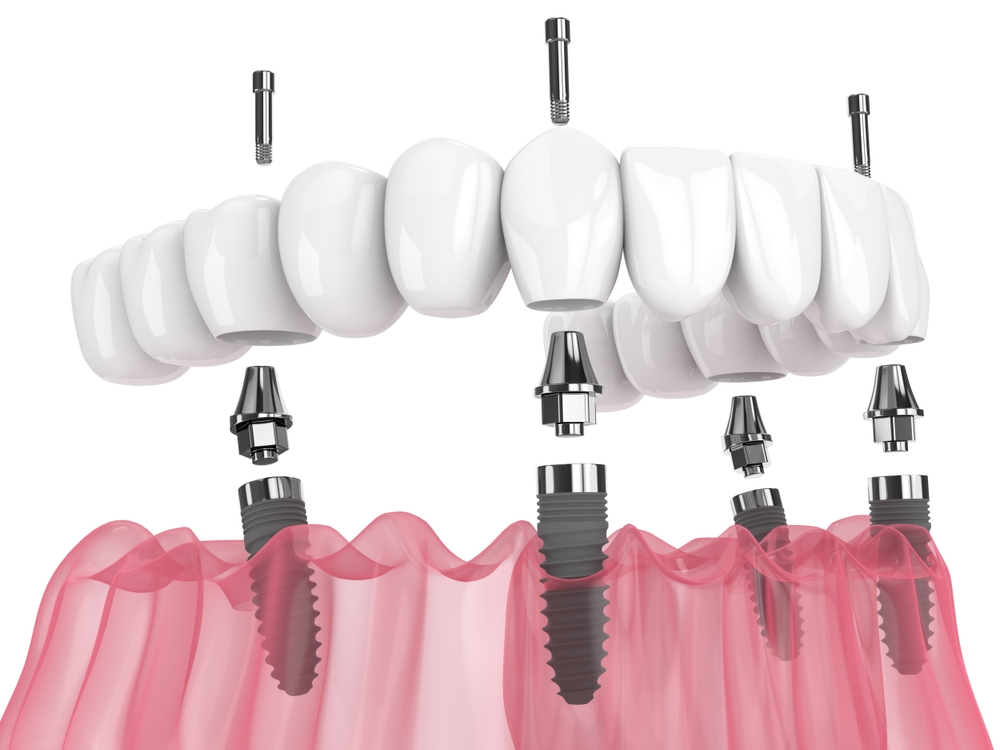Super friendly staff and excellent state of the art technology
Dental Implants in West Sayville, New York
Are you tired of living with missing teeth and hiding your smile because of embarrassment? Let our experienced dental implant provider in West Sayville, NY, bring your smile back to life with custom dental implants. With our dental implant procedures, you’ll regain full function and smile from ear to ear once again!
We’re here to help you meet your oral health goals and restore the function and beauty of your smile. Contact our West Sayville dental office today by calling 631-563-1583 to schedule a dental implant consultation. Dr. Richard Sigismondi has over 40 years of experience in dentistry and loves bringing smiles to his patient’s faces. We proudly serve patients in Sayville and its surrounding areas, including Long Island, Bayshore, and more.

What Are Dental Implants?
Dental implants are artificial tooth roots used to replace missing teeth. They’re surgically implanted into the jawbone, providing a stable foundation for artificial teeth or dental prosthetics. Dental implant placement offers a long-term solution for individuals who have lost one or more teeth for various reasons, such as decay, injury, or periodontal disease. Dr. Richard Sigismondi in Sayville, NY, can use them to restore one or several missing teeth.
A dental implant is made of a biocompatible material, commonly titanium, allowing it to naturally fuse with the jawbone over time. This process, known as osseointegration, creates a strong foundation for the custom prosthetic.
Dental Implant Structure
A dental implant consists of the following three components:
- The Implant: This is a small, screw-like post usually made of titanium, a biocompatible material. The implant is surgically placed into the jawbone, where it integrates with the bone over time through osseointegration.
- Abutment: The abutment is a connector piece that attaches to the implant and protrudes above the gumline. It serves as a connection between the implant and the artificial tooth or dental prosthetic.
- Artificial Tooth: The crown, or prosthetic, is the visible part of the dental implant that mimics the natural tooth. It’s custom-made to match the shape, size, and color of the patient’s existing teeth for a natural appearance.
Why Choose Dr. Sigismondi for Dental Implants?
As a Long Island native, Dr. Sigismondi has had a lifelong passion for the field of dentistry. As a well-rounded dental provider, with a focus on dental implant surgery, he has placed countless successful implants in his career. He’s a firm advocate of using surgical guides in dental implant placement, ensuring accuracy and optimal outcomes of the procedure in terms of aesthetics, function, and comfort.
Dental implants may be what you’ve been looking for! Don’t wait any longer. Contact our implant dentist in West Sayville today for a consultation.

Dental Implants Benefits
Dental implants in Long Island can offer patients the following benefits:

- Natural appearance
- Enhanced confidence
- Durable, long-lasting tooth replacement
- Improved speech
- Improved eating experience
- Better oral health
- Jawbone preservation
- Easy to care for
- Cost-effective
- Prevents shifting of surrounding teeth
- No food restrictions
- Better quality of life

Are You a Candidate for Dental Implants?
More patients than ever can qualify for dental implant placement thanks to advancements in modern dental technology. You may qualify for implants if any of the following apply to you:
- You’re missing one or more teeth
- You have adequate jawbone density and gum tissue mass (if not, we may recommend a bone graft or sinus augmentation before implant treatment)
- You practice good oral hygiene and will continue to do so
- Your jawbone is fully developed
To learn more about candidacy for implant placement, you can call our West Sayville dental office by dialing 631-563-1583, and we’ll gladly answer any of your questions. We can also discuss other tooth replacement options.
Types of Dental Implants
Endosteal Dental Implants
Endosteal dental implants are the most common type of dental implant. With endosteal implants, the post gets inserted directly into the bone and is used for those who have enough bone structure to support it.
There are various dental implant treatments available today. However, each dental office offers different options. To learn more about the options offered at our Sayville dental practice, contact our dentist today.
Single-Tooth Dental Implants
A single-tooth dental implant completely replaces one lost tooth from root to crown. It involves the placement of a titanium implant into the jawbone that serves as the foundation for a custom-made prosthetic single-tooth replacement itself. Most patients receive a dental crown as the visible portion of their implant treatment. A single-tooth replacement with a dental implant provides patients with a permanent solution for missing or damaged teeth.
Immediate-Load “Same Day” Dental Implants
Immediate-load dental implants, also known as same-day implants or teeth-in-a-day, are done in one appointment. With teeth-in-day implants, our Sayville dentist places the implant and prosthetic tooth in the mouth at the same time, allowing the patient to leave the dental office with a fully functional replacement tooth after just one dental implant procedure.
All-On-Four
All-on-four dental implants are full-arch replacement options. It involves placing four implants in the upper or lower jawbone and securing a full arch of prosthetic replacement teeth to them. The All-on-four technique is less invasive and is a good option for those who have lower bone density, as it allows for the restoration of a full arch of teeth while using fewer implant posts.


Implant-Supported Bridges
Implant-supported bridges are excellent options for replacing multiple missing teeth. A traditional dental bridge, or artificial tooth root, is anchored to the jaw using implants. The bridge is typically made up of two or more artificial teeth connected and attached to the dental implant abutments. The number of posts needed will vary depending on the size of the bridge.
Implant-Supported Dentures
Implant-supported dentures are removable appliances anchored to the mouth and jaw using dental implants. They provide a more secure fit and eliminate the messy adhesives that removable dentures typically need. Implant-supported dentures are a more stable option than traditional dentures and can improve overall oral health by providing jawbone stimulation.
Mini Dental Implants
Mini dental implants are a smaller version of traditional implants. They’re a less invasive dental implant surgery option typically used to replace a single tooth or stabilize a loose denture. They shorten the healing process and have a lower cost. However, they may not be suitable for patients who don’t have adequate bone density.
Zygomatic Dental Implants
Zygomatic dental implants can restore lost teeth for patients who don’t have enough jawbone density to support a traditional endosteal implant. While zygomatic implants are still in use, they’re less common today and aren’t used by our Long Island dentist.
Subperiosteal Dental Implants
Subperiosteal dental implants sit on top of the jawbone but under the gum tissue. Subperiosteal implants are rarely used because of modern technological advancements in the field of implant dentistry.
The Dental Implant Procedure
For those receiving traditional dental implants, the dental implant procedure involves a multi-step process. Our Sayville dentist will start with a comprehensive dental exam and create your custom implant treatment plan from there. During the surgical phase, a small titanium implant is surgically placed into the jawbone to serve as the foundation for the replacement tooth.
Over several months, the implant fuses with the bone through osseointegration. Once the implant has been firmly integrated, an abutment is attached to it, and a custom-made crown is placed on top, restoring the appearance and function of a natural tooth. Take care of your oral health after the procedure, as directed by our dentist, to ensure you avoid any complications from developing.
Other Ways to Make You Smile
My wife and I are indeed fortunate to be under the oral care of Dr. Sigismondi. He, and his staff, are professional and friendly. For each visit, I enter the office with the confidence that any issues I might have will be readily addressed. Dr. Sigismondi is able to attend to potential problems and to provide solutions well before they appear and cause complications. His evaluations are thorough and comprehensive.
FANTASTIC . never have I been so relaxed at the dentist as I am with Dr.Sigismondi and his entire office. Thanks for being so considerate of my needs. I’m sure it’s no pleasure with me.haha thanks again 9/12/13.just as relaxed as last time…..looking forward to “root Canel” work next week..
Dr Sigismondi is the man!! I’ve been going to him for about 5 years and he was recommended by to me by my wife’s periodontist Dr Scharf. Thanks so much for operating a wonderful practice which I love to go to when needed. Never any apprehension on my visits!! Highly recommended!
Absolutely amazing experience with a root canal. Gentle and professional. What more could you ask for. I waisted 43 years going to hack dentists and causing myself pain and grief. Wish I would of went straight to Dr. SIGISMONDI day one.
Frequently Asked Questions
Yes, a missing tooth needs to be replaced as soon as possible. By suffering from prolonged tooth loss, you may experience:
- Shifting of the surrounding teeth: When you experience tooth loss, the surrounding teeth may shift to fill the gap. Shifting teeth can lead to misalignment and bite problems.
- Bone loss: The jawbone needs stimulation from the roots of the teeth to maintain its density. When a tooth is missing, the jawbone may shrink, leading to bone loss.
- Increased risk of periodontal disease: Missing teeth can create space for bacteria to accumulate, increasing your risk of gum disease.
- Functional issues: Missing teeth can impact your ability to bite and chew properly, potentially leading to difficulties in eating certain foods. This can affect your nutrition and overall health.
Dental implants can last between 20 years and a lifetime. To increase the long-term success of your dental implant, maintain excellent at-home dental care and schedule regular dental visits for checkups and cleanings.
Many types of dental professionals can place dental implants, including:
- An Oral and Maxillofacial Surgeon: Dental professionals who have completed additional training and education in the surgical placement of dental implants. They have the most extensive training and experience in implant placement and are often considered the most qualified to place them.
- A Periodontist: They specialize in the treatment of periodontal disease and placing dental implants. They have completed additional training in implant placement and have a good understanding of the underlying bone and tissue structure.
- A Prosthodontist: Specializes in the replacement of missing teeth and the restoration of natural teeth. They’re also qualified to place dental implants.
- A General Dentist: They’ve completed training in implant placement and are qualified to place them.
